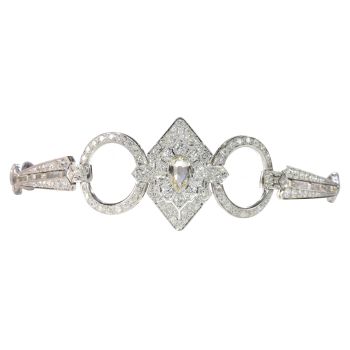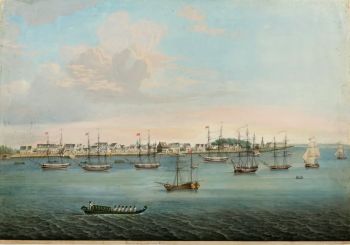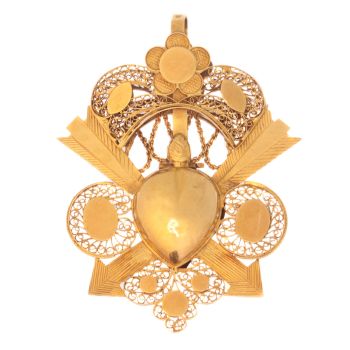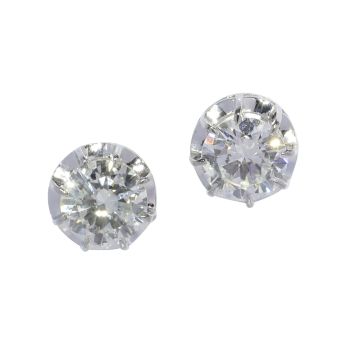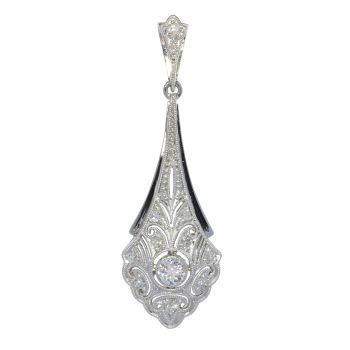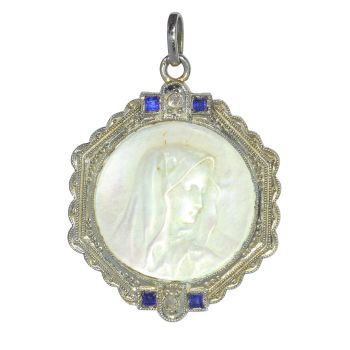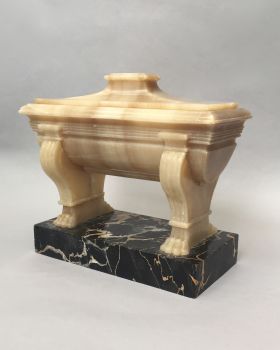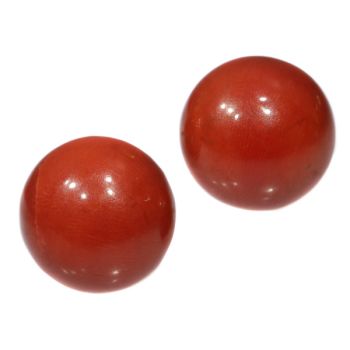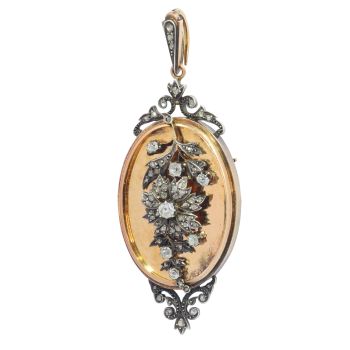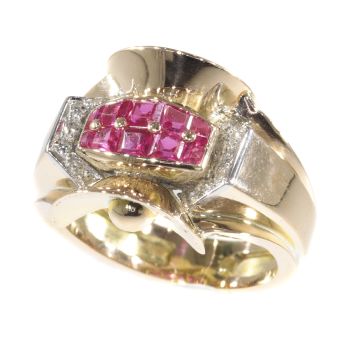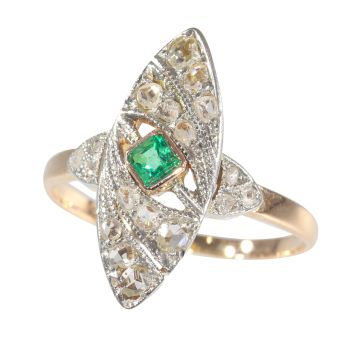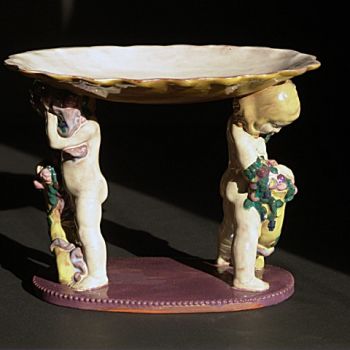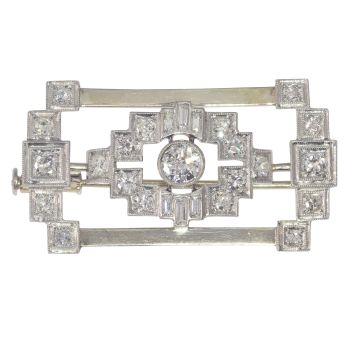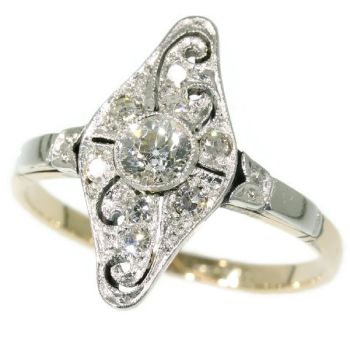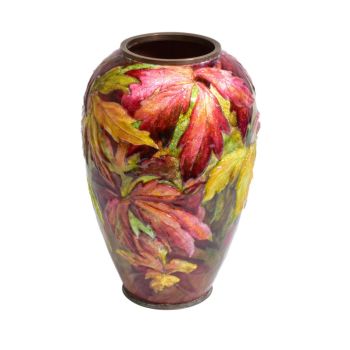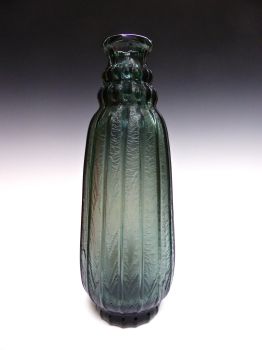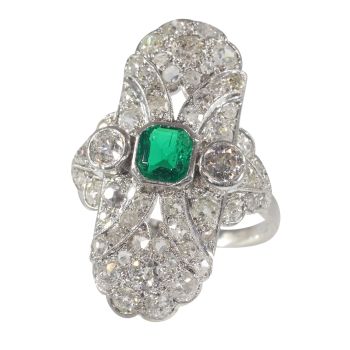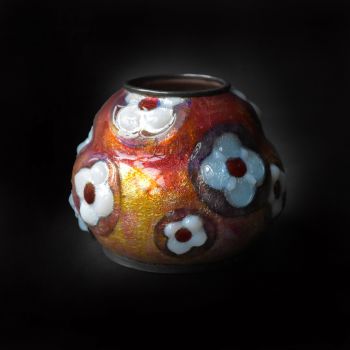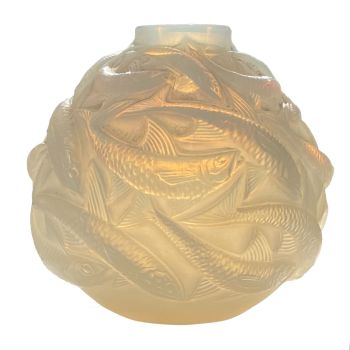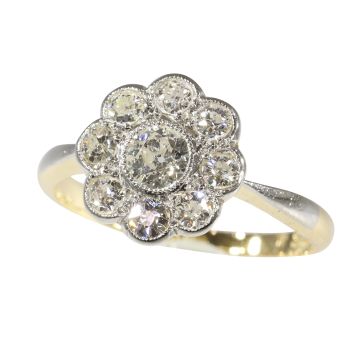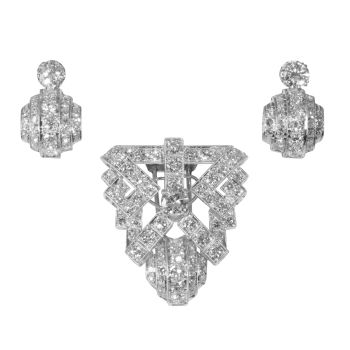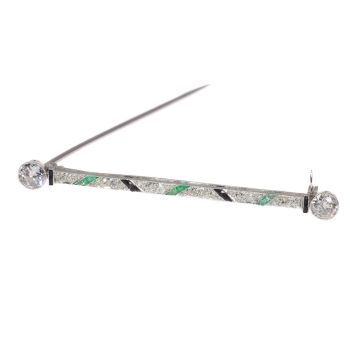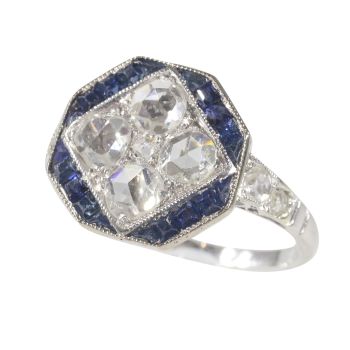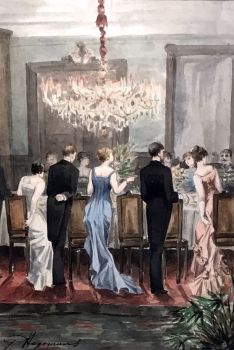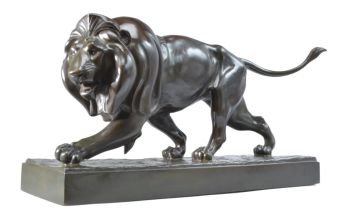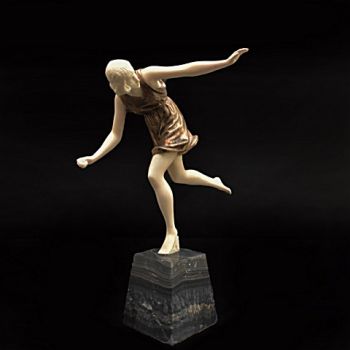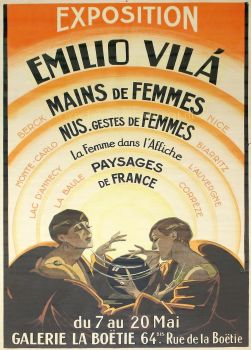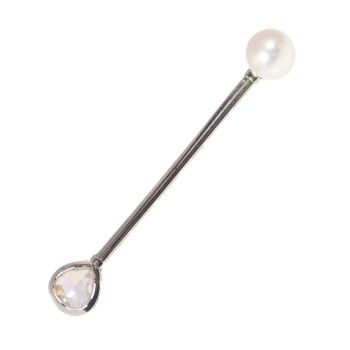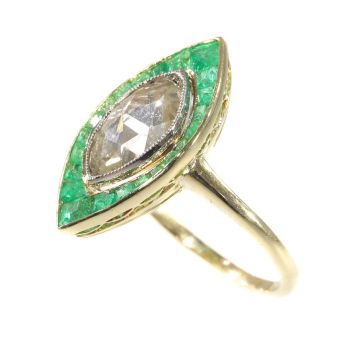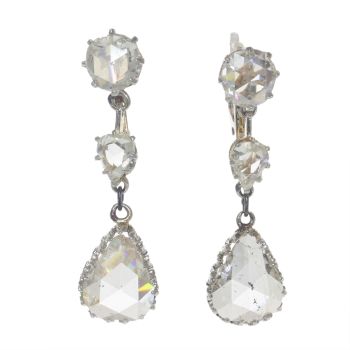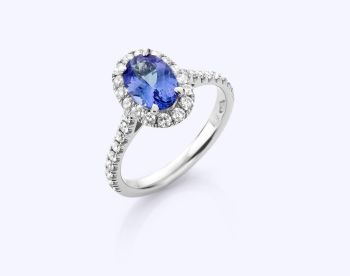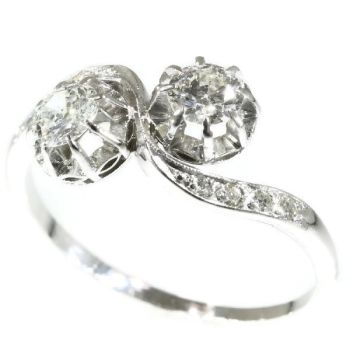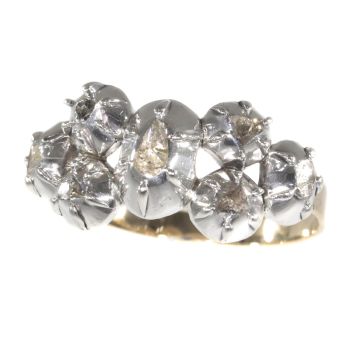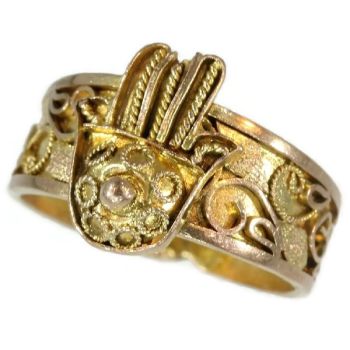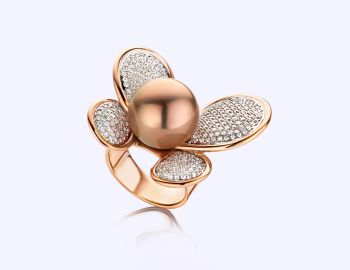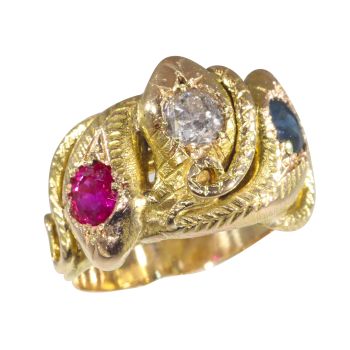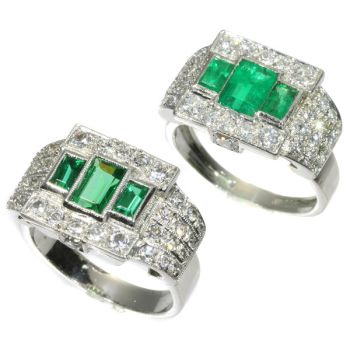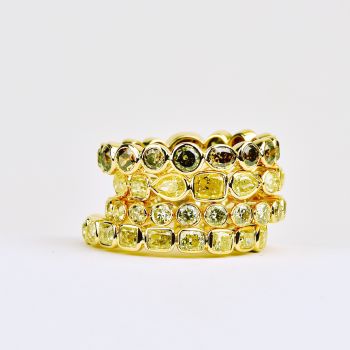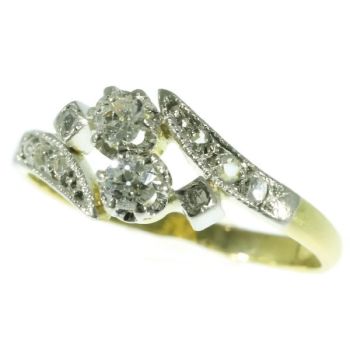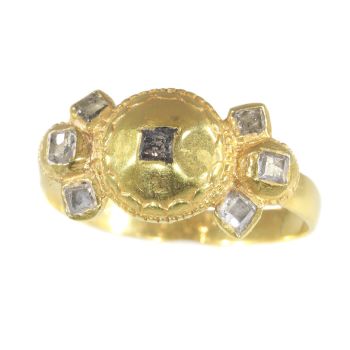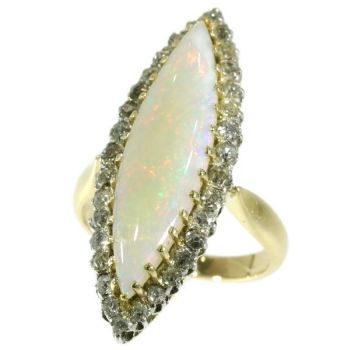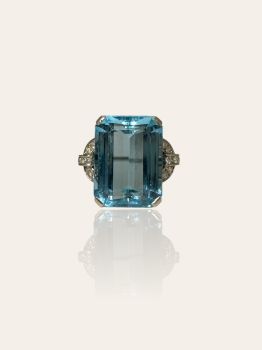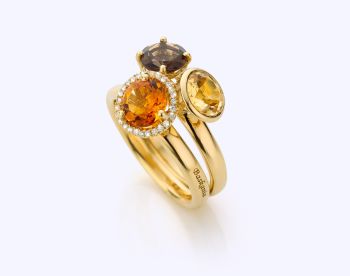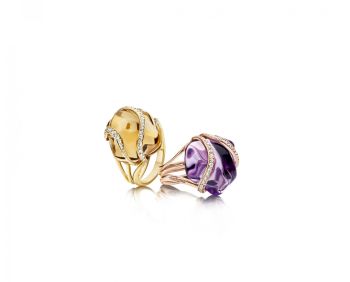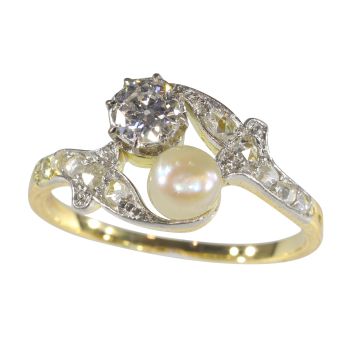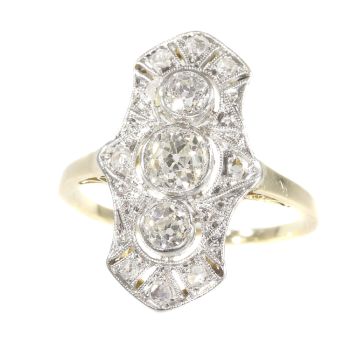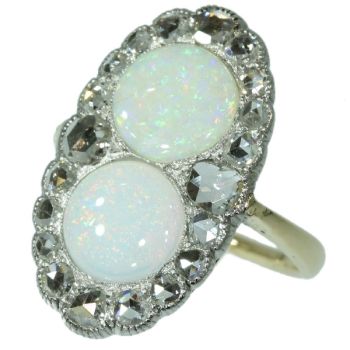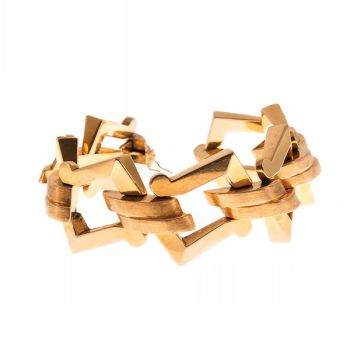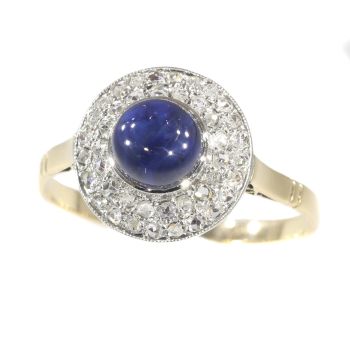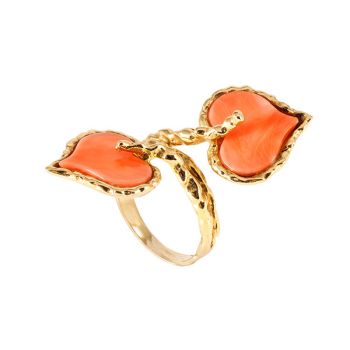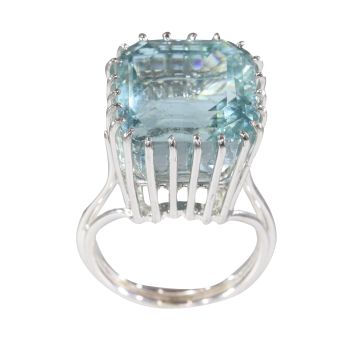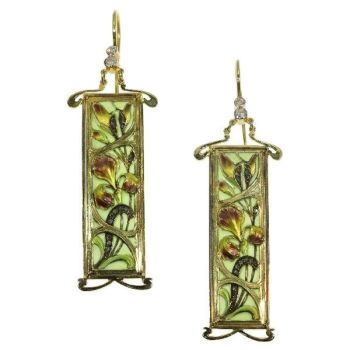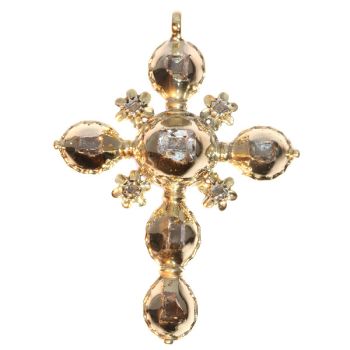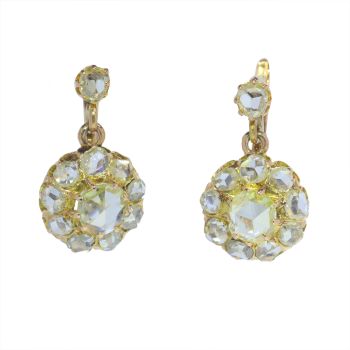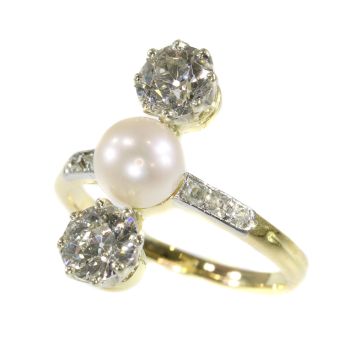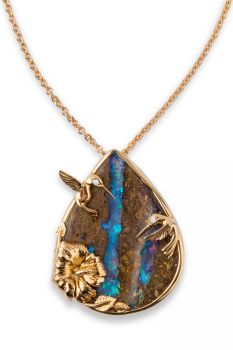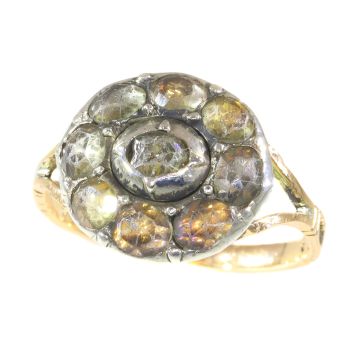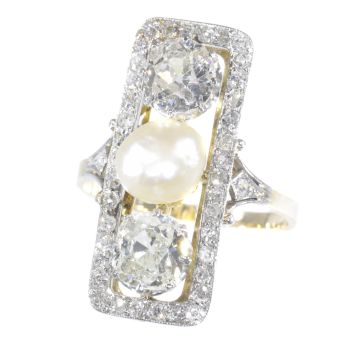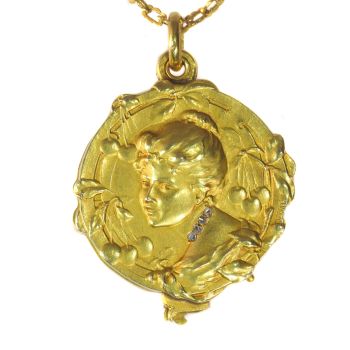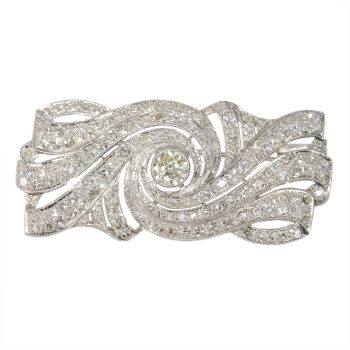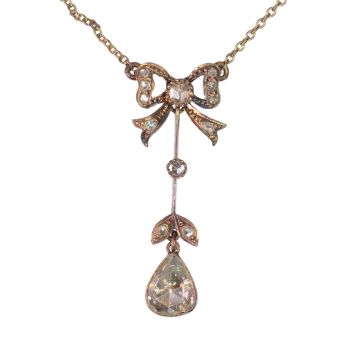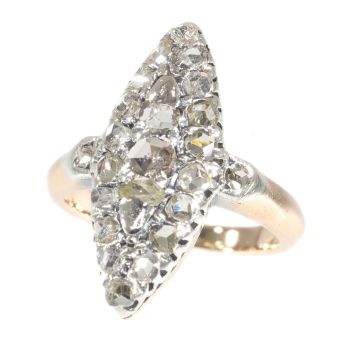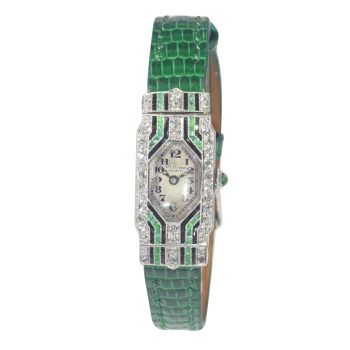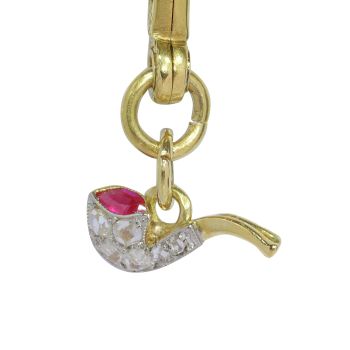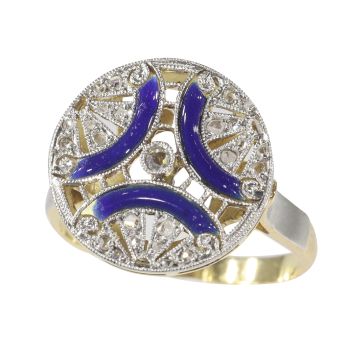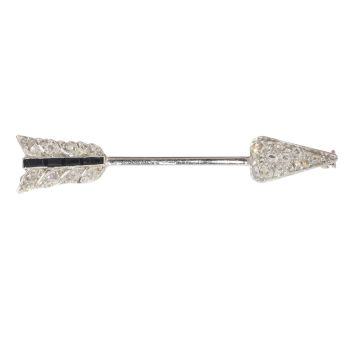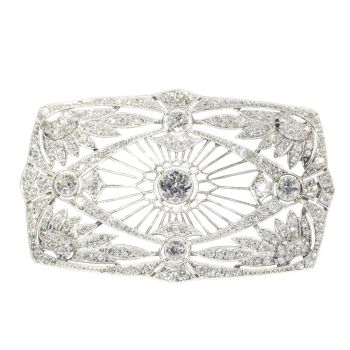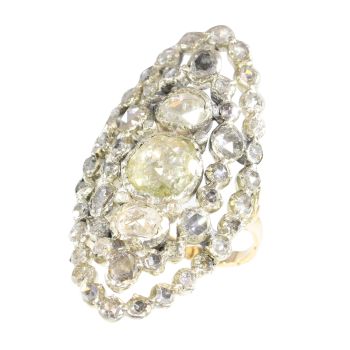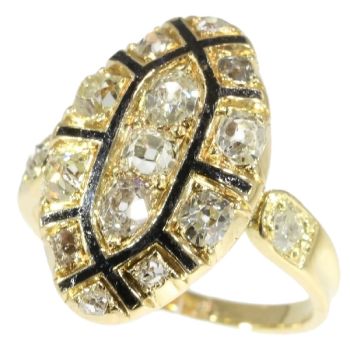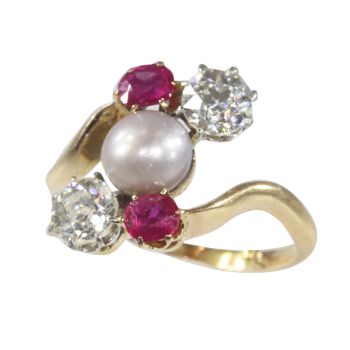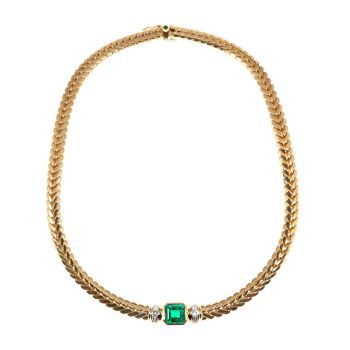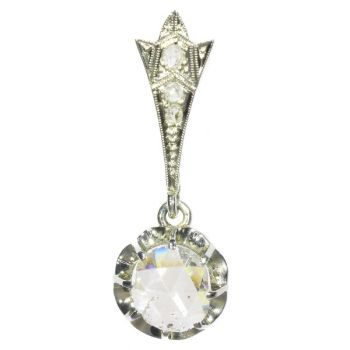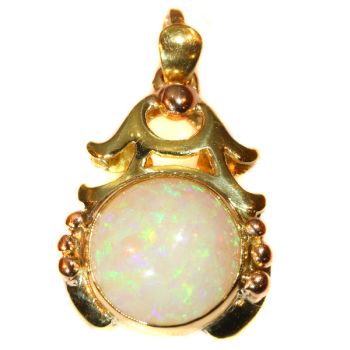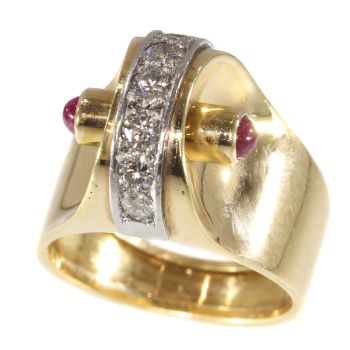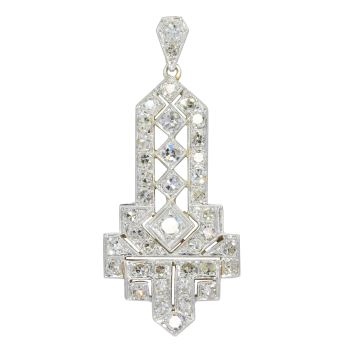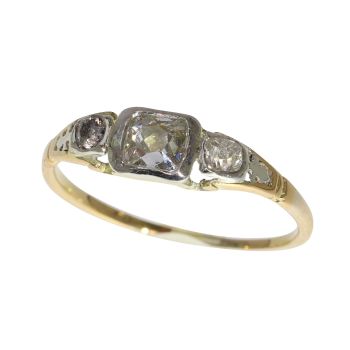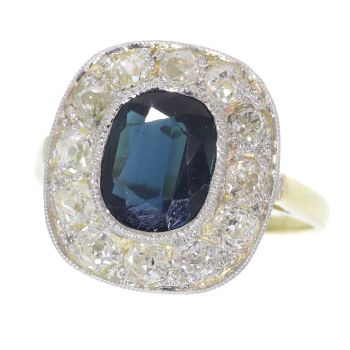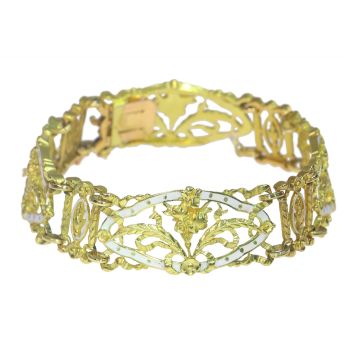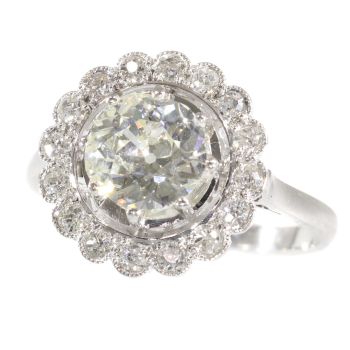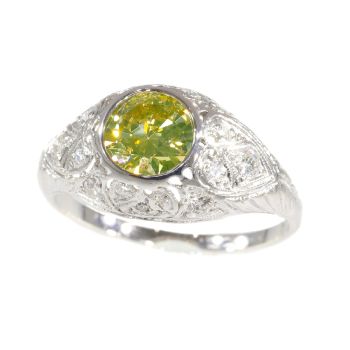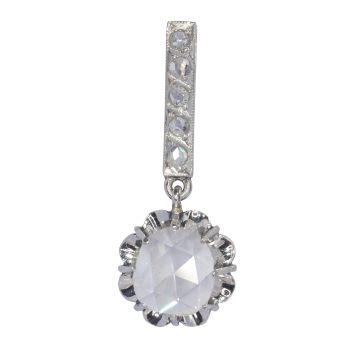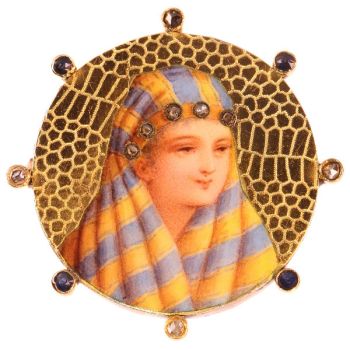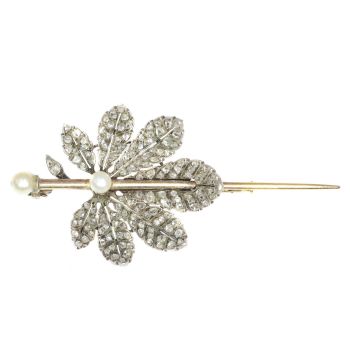Vintage Deco Elegance: 1930s Diamond Ring 1930
Onbekende Kunstenaar
Adin Fine Antique Jewellery
- Over kunstwerk
A vintage gem from the 1930s, this Art Deco diamond ring captures the transition from the Art Deco to the Interbellum period. It is expertly crafted in two tones of precious metal, primarily 18K yellow gold with white gold or platinum accents. The ringis adorned with 27 diamonds, including one old brilliant cut diamond of approximately 0.60ct and a combined weight of approximately 3.08ct, offering a dazzling display of elegance and craftsmanship. This piece embodies the era's penchant for abstractmotifs and geometric forms, making it not just a ring but a statement of sophisticated style, reflecting the glamour and modernity that defined the period.
Antique jewelry object group
Vintage Deco Elegance: 1930s Diamond Ring
Condition
very good condition
more info on our condition scale
Country of origin
unknown
Style
Between Art Deco and Interbellum - Art Deco is an eclectic artistic and design style which had its origins in Paris in the first decades of the 20th century. The style originated in the 1920s and continued to be employed until after World War II. Theterm "art deco" first saw wide use after an exhibition in 1966, referring to the 1925 Exposition Internationale des Arts Décoratifs et Industriels Modernes that was the culmination of high-end style modern in Paris. Led by the best designers inthe decorative arts such as fashion, and interior design, Art Deco affected all areas of design throughout the 1920s and 1930s, including architecture and industrial design, as well as the visual arts such as painting, the graphic arts and film. At thetime, this style was seen as elegant, glamorous, functional and modern. The interwar period (1918–1939) is understood, within recent Western culture, to be the period between the end of the First World War and the beginning of the Second World War. Thisis also called the period between the wars or interbellum.
See also: Art Deco and Interbellum
more info on styles
Style specifics
This is something between Art Deco and the Interbellum.
Abstract motives and geometrical forms are quite typical for the Art Deco period. Art Deco moved away from the soft pastels and organic forms of its style predecessor, Art Nouveau, and embraced influences from many different styles and movements of the early 20th century, including Neoclassical, Constructivism, Cubism, Modernism, and Futurism. Its popularity peaked in Europe during the Roaring Twenties and continued strongly in the United States through the 1930s. Although many design movements havepolitical or philosophical roots or intentions, Art Deco was purely decorative.
The Interbellum is the period between the two World Wars and one can recognize a transition from the Art Deco style to the Retro style.
Period
ca. 1930
Events & facts of this era, poetry of this era, fashion of this era.
Material
Two tones of precious metal, the main part being 18K yellow gold and the white parts are either white gold or platinum. (touchstone tested)
more info on precious metals
Diamonds
One old brilliant cut diamond with an estimated weight of ± 0.60ct
Four old mine brilliant cut diamonds with an estimated weight of ± 0.72ct
22 old mine brilliant cut diamonds with an estimated weight of ± 1.76ct
Total diamond count
27 pcs.
Total diamond weight
approx. 3.08 crtwith an average colour and clarity G/I, vs/si
All diamond weights, color grades and clarity are approximate since stones are not removed from their mounts to preserve the integrity of the setting.
All diamonds we offer are screened by the I.J.G.C. for whether they are natural or synthetic, and all diamonds in this jewel are 100% guaranteed to be natural.
Birthstones
Diamond is the birthstone (or month stone) for April.
more info on birthstones
Hallmarks
No trace.
more info on hallmarks
Dimensions
top of ring 2,07 cm (0,81 inch) x 2,35 cm (0,93 inch)
see picture with a ruler in millimeters and inches
Weight
5,40 gram (3,47 dwt)
Ring size Continental EU: 52 & 16½ , Size USA: 6 , Size UK: L
Resizing
Free resizing (only for extreme resizing we have to charge).
more info on ring sizes
Adin Reference Nº
23345-0110
Copyright photography
Adin, fine antique jewellery
Additional information
our latest acquisitions
jewelry glossary
wall of fame
visit us in Antwerp
subscribe to our mailinglist
- Over kunstenaar
Het kan voorkomen dat een kunstenaar of maker onbekend is.
Voor sommige werken is het niet te bepalen door wie het gemaakt is of dat het is gemaakt door (een groep) ambachtslieden. Voorbeelden zijn beelden uit de Oudheid, meubels, spiegels of handtekeningen die vaak niet duidelijk of leesbaar zijn. Maar ook sommige werken zijn helemaal niet gesigneerd.
Ook kunt u de volgende beschrijving vinden:
•"Toegeschreven aan …." waarschijnlijk een werk van de kunstenaar maar niet zeker of gedeeltelijk
•“Atelier van ….” of werkplaats van” een werk uitgevoerd in het atelier of atelier van de kunstenaar, eventueel onder zijn toezicht
•“Cirkel van ….” een werk uit de periode van de kunstenaar die zijn invloed laat zien, nauw verbonden met de kunstenaar maar niet noodzakelijkerwijs zijn leerling
•“Stijl van ….” of “Volger van ….” een werk uitgevoerd in de stijl van de kunstenaar, maar niet noodzakelijk door een leerling; kan eigentijds of bijna eigentijds zijn
•“Wijze van ….” een werk in de stijl van de kunstenaar maar van latere datum
•"Na …." een kopie (van welke datum dan ook) van een werk van de kunstenaar
•“Getekend…”, “Gedateerd….” of “Ingeschreven” dan is het werk gesigneerd/ gedateerd/ ingeschreven door de kunstenaar. De toevoeging van een vraagteken duidt op een element van twijfel
•"Met handtekening ...", "Met datum ...", "Met opschrift..." of “Draagt signatuur/datum/opschrift” dan is de handtekening/datum/opschrift toegevoegd door iemand anders dan de kunstenaar
Bent u geïnteresseerd om dit kunstwerk te kopen?
Artwork details
Related artworks
- 1 - 4 / 12
- 1 - 4 / 24
- 1 - 4 / 24
- 1 - 4 / 24
- 1 - 4 / 12








